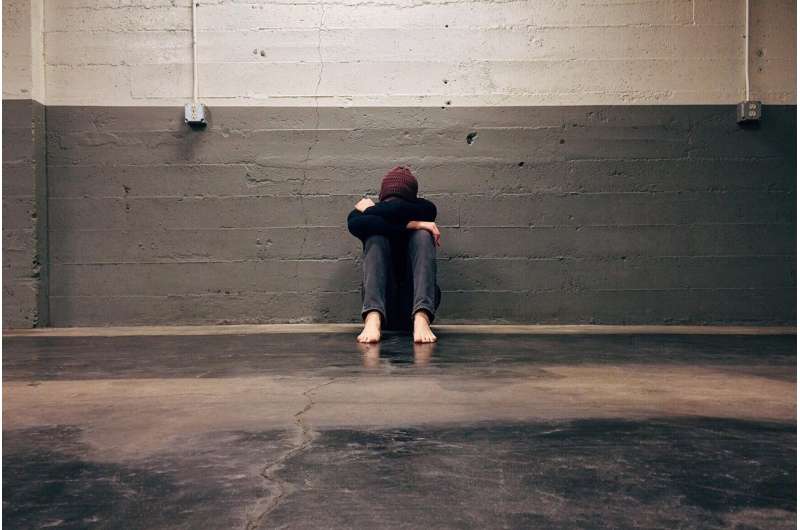Homelessness, hospitals and mental health: Study shows impacts and costs

Six years ago, U.S. hospitals officially received the ability to document patients' housing status, including housing instability and homelessness. The new "Z codes" reflect an increasing recognition of the role of housing as one of the key social determinants of health.
A new study that harnesses those data reveals vast differences in diagnoses between patients with and without housing issues who are admitted to hospitals. This includes a sharp divide in care for mental, behavioral and neurodevelopmental conditions. The work is published in JAMA Network Open.
The researchers, from the University of Michigan Institute for Healthcare Policy and Innovation, say their findings show the importance of improving tracking of housing status in health care, and of working to address housing as a social driver of health.
Hospital staff only recorded any sort of housing instability for 1% of hospital admissions in the national sample studied, according to the new study by a team led by IHPI scholar Kimberly Rollings, Ph.D. Nearly all of those patients were recorded as experiencing homelessness, even though the Z codes offer 5 different categories of housing instability.
In all, 50% of hospital stays for people with documented housing issues were for mental, behavioral and neurodevelopmental care. That's 10 times higher than the percentage of hospital stays for these conditions by people who didn't have housing instability recorded in their chart.
Patients with documented housing instability also had longer lengths of stay in the hospital. On average, they stayed two additional days.
Patients with documented housing instability also accounted for 10% of inpatient days for mental, behavioral and neurodevelopmental care. These conditions often require long waiting times for beds, so any reduction in length of stay could improve access for all.
The study uses data from the National Inpatient Sample, which captures 20% of all general hospital care to provide nationally representative estimates of hospital care across insurance types. The authors used data from 2017 to 2019, when coding for social determinants of health was becoming more common.
Caring for hospitalized people with documented housing instability in this sample cost $9.5 billion, with $3.5 billion of that cost attributed to care for mental, behavioral and neurodevelopmental conditions. Since people with housing issues were far more likely than others to have Medicaid coverage (55%) or no insurance (12%), the brunt of those costs likely falls on state programs and hospitals.
Putting it all together, the authors explain, "Our findings identify the business case for synergistic collaborations between housing, hospital and mental health experts."
"Because of the lack of use of Z codes, our findings are likely the tip of the iceberg," says Rollings. "If we want to improve care for these individuals, and make the best use of hospital beds, health care professionals and their institutions need to do more to improve screening for this important social driver."
Rollings is in the Health & Design Research Fellowship Program led by Andrew M. Ibrahim, M.D., M.Sc., the study's lead author. Ibrahim is a surgeon, clinician scientist, and health care design researcher in the Michigan Medicine Department of Surgery.
"This important work led by a housing expert using health care data is exactly why we started this Fellowship. We need more interdisciplinary work such as that led by Dr. Rollings," Ibrahim said.
The Centers for Medicare and Medicaid Services has more information on using Z codes, as does the American Hospital Association.
In addition to Rollings and Ibrahim, the new study's authors are Nicholas Kunnath, M.S. of the Department of Surgery; Caitlin R. Ryus, M.D., M.P.H. of Yale University; and IHPI National Clinician Scholar Alexander T. Janke, M.D., M.H.S.
More information: Kimberly A. Rollings et al, Association of Coded Housing Instability and Hospitalization in the US, JAMA Network Open (2022). DOI: 10.1001/jamanetworkopen.2022.41951




















